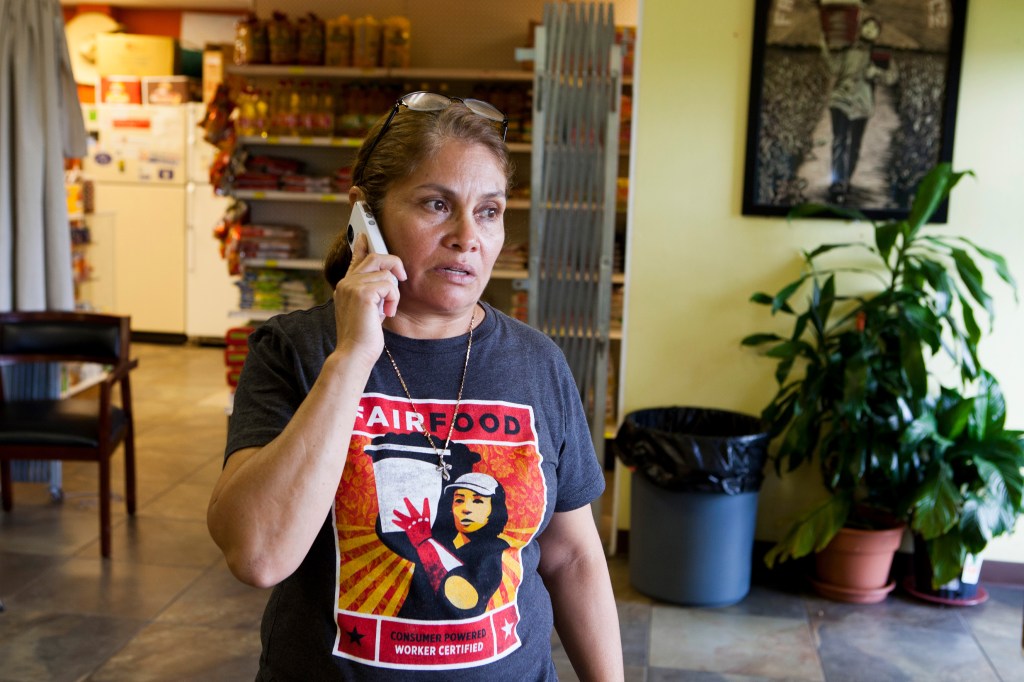
Much has been written about the massive changes that are underway in the nature and future of work, but we still have more questions than answers. How, for example, can we ensure that the jobs changed, shifted, and gained in this transformation are of good quality? How might we reimagine work as a pathway to economic security? How might we help workers be better positioned to advance toward the future of work they want? What can we do to modernize the security net? How can digital technology improve work in this so-called “fourth industrial revolution”? And how can we develop a deeper understanding of what’s at stake in this moment of change?
One thing is clear: We need robust, scalable solutions that foster worker well-being and thriving economies, both locally and globally. And so, to shape a future of work that offers shared opportunity, security, and prosperity for all people and communities, we’ll need to think outside the box.
In other words, we need innovation—a word that has come to be virtually meaningless, invoked in discussion about any number of complex challenges. In a world often driven by Silicon Valley norms and techno-determinism, “innovation” can signal a charge to seek out an “app for that,” the sexy, silver-bullet solution that aims to “disrupt.” Too often, it is attached to half-baked ideas from under-informed do-gooders. Indeed, there are far too many examples of “solutions”—disconnected from people, socio-political contexts, and structural issues—that shift risk from the powerful to the vulnerable and exchange human dignity and public good for convenience, efficiency, and profit.
But the fact remains that the scale of this challenge requires new ideas, frameworks, and experimentation. Without that kind of fresh thinking, we won’t be able to move the needle on equity and justice. The Coalition of Immokalee Workers’ (CIW) Fair Food Program is a good example of how innovative thinking and approaches have helped strengthen farmworkers’ rights. Building on its long history of organizing around wages, working conditions, and trafficking, CIW shifted its focus from growers to consumers of agricultural products to reshape business practices across the supply chain. As a result of the campaign’s efforts targeted at restaurants and grocery stores, companies have begun to provide fairer wages and creating more humane working conditions for farmworkers. Today, the Fair Food Program is recognized as an effective and scalable model of worker-driven social responsibility.
We need creative perspectives and processes to help us answer burning questions about the future of work(ers), and anticipate and address the challenges we foresee. So how do we make sure this innovating is not a novelty, but is meaningful and principled? That we are advancing new ideas and approaches not merely for the sake of newness, but to account for structural dynamics, anticipate consequences, and lead to true and lasting change? We certainly don’t have all the answers, which is why we are excited to support people and organizations experimenting with ideas and solutions. The three pillars of our Future of Work(ers) strategy point to three kinds of innovation we are investing in.
Collaborative innovation
Collaboration between and among stakeholders, across sectors, and around issues is critical to driving robust solutions that are poised to shape a future of work that delivers for workers. This past summer with OpenIDEO, the Ford Foundation supported a series of workshops that brought together leaders from labor, policy, government, academia, and business to design future of work solutions. The potential approaches we identified included fostering corporate transparency and accountability, tackling power structures, and using technology in ways that empower workers. The workshops themselves functioned as a microcosm of what is possible when we strengthen connections in the broader future of work field.
Inclusive innovation
Too often, the future of work is discussed and addressed without the participation of workers. Whether or not this is intentional, the result is often a failure to engage with critical power dynamics. The absence of workers in these conversations can also perpetuate the idea that there is a zero-sum game between labor and business, and prevent us from identifying worker-centered solutions. In the spirit of “nothing for us, without us,” we support efforts focused on strengthening worker organization, voice, and power at convenings, in projects and initiatives, and all the way through the institutions that shape work. The Workers Lab and LIFT (Labor Innovations in the 21st Century) Fund are two partners that ground innovation in the perspectives and experiences of low-wage workers.
Transformative innovation
Thanks to the current frenzy about the future of work, we have the space and time to ask and tackle meaningful questions about how we might come together to transform work to benefit all individuals, communities, and economies. Rather than tinkering around the edges and making incremental change, we can confront structural challenges and shape policy and practice to truly transform society. This is why we are supporting the Clean Slate Project, which is building a policy agenda that aims to reconstruct labor law in ways that will rebalance our economy and politics.
We are excited to engage with genuine innovation—the ideas and solutions being led by people and organizations on the frontlines of economic justice, who know that collaboration and inclusion are the keys to transformation.
